50 start with W start with W

This book exposes the history and the future of the Wagner Group, Russia’s notorious and secretive mercenary army, revealing details of their operations never documented before. Using extensive leaks, first-hand accounts, and the byzantine paper trail left in the group’s wake, Jack Margolin traces the Wagner Group from its roots as a battlefield rumor to a private military enterprise tens of thousands–strong that eventually comes to threaten Putin himself. He follows individual commanders and foot soldiers within the group as they fight in Ukraine, Syria, and Africa, sometimes alongside fellow military contractors from the United Kingdom and the United States. He shows Wagner mercenaries committing atrocities, plundering oil, diamonds, and gold, and changing the course of conflicts from Europe to Africa in the name of the Kremlin’s strategic aims.
In documenting the Wagner Group’s story up to the dramatic demise of its chief director, Evgeniy Prigozhin, Margolin demonstrates what the Wagner Group represents for not only the future of Putin’s political system but also the privatization of war.
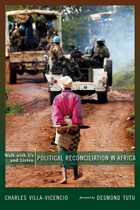
Effective peace agreements are rarely accomplished by idealists. The process of moving from situations of entrenched oppression, armed conflict, open warfare, and mass atrocities toward peace and reconciliation requires a series of small steps and compromises to open the way for the kind of dialogue and negotiation that make political stability, the beginning of democracy, and the rule of law a possibility.
For over forty years, Charles Villa-Vicencio has been on the front lines of Africa's battle for racial equality. In Walk with Us and Listen, he argues that reconciliation needs honest talk to promote trust building and enable former enemies and adversaries to explore joint solutions to the cause of their conflicts. He offers a critical assessment of the South African experiment in transitional justice as captured in the Truth and Reconciliation Commission and considers the influence of ubuntu, in which individuals are defined by their relationships, and other traditional African models of reconciliation. Political reconciliation is offered as a cautious model against which transitional politics needs to be measured. Villa-Vicencio challenges those who stress the obligation to prosecute those allegedly guilty of gross violation of human rights, replacing this call with the need for more complementarity between the International Criminal Court and African mechanisms to achieve the greater goals of justice and peace building.

In this original and provocative book, Nahed Artoul Zehr explores the theological underpinnings of al-Qaeda and related Islamic movements such as ISIS. She demonstrates how this marginal narrative transformed al-Qaeda from a relatively hierarchical and regional organization to a globalized, decentralized, and diffuse system of networks. She draws connections between religious ideas and strategy in her translation and analysis of leading theoretical and tactical jihad text, The Global Islamic Resistance Call, by Mustafa abu Mus’ ab al-Suri.
Just as importantly, she questions al-Qaeda’s understanding of the Islamic tradition on the use of force, arguing that it reflects a weak understanding of this tradition. More specifically, it is al-Qaeda’s (and related groups’) break with this tradition that is key to an al-Qaeda defeat.
Simultaneously, Zehr critiques the US military and policy establishment as it attempts to offer counter-narratives to the al-Qaeda phenomenon that emphasizes “good Muslims” versus “bad Muslims” in order to embrace a “moderate” form of Islam. According to Zehr, this approach is misguided: it is beyond the US government’s purview and expertise to make such theological claims about Islam. Better, she argues, to note the counter-narratives that are coming from within the Muslim community and other nongovernment institutions interested in moving this work forward.
By refocusing our attention on al-Qaeda’s narrative and the various ways thatit is being contested, the book provides an alternate lens from which to viewal-Qaeda and the al-Qaeda phenomenon for Islamic and US foreign policy scholars and students.
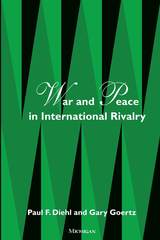
Paul Diehl and Gary Goertz identify 1166 rivalries since 1816. They label sixty-three of those as enduring rivalries. These include the competitions between the United States and Soviet Union, India and Pakistan, and Israel and her Arab neighbors. The authors explain how rivalries form, evolve, and end.
The first part of the book deals with how to conceptualize and measure rivalries and presents empirical patterns among rivalries in the period 1816-1992. The concepts derived from the study of rivalries are then used to reexamine two central pieces of international relations research, namely deterrence and "democratic peace" studies. The second half of the book builds an explanation of enduring rivalries based on a theory adapted from evolutionary biology, "punctuated equilibrium."
The study of international rivalries has become one of the centerpieces of behavioral research on international conflict. This book, by two of the scholars who pioneered such studies, is the first comprehensive treatment of the subject. It will become the standard reference for all future studies of rivalries.
Paul F. Diehl is Professor of Political Science and University Distinguished Teacher/Scholar, University of Illinois. He is the coeditor of Reconstructing Realpolitik and coauthor of Measuring the Correlates of War. Gary Goertz is Assistant Professor of Political Science, University of Arizona, and is the coauthor with Paul Diehl of Territorial Change and International Conflict.

Success in war ultimately depends on the consolidation of political order. Nadia Schadlow argues that the steps needed to consolidate a new political order are not separate from war. They are instead an essential component of war and victory.
The challenge of governance operations did not start with the wars in Iraq and Afghanistan. The US Army’s involvement in the political and economic reconstruction of states has been central to all its armed conflicts from large-scale conventional wars to so-called irregular or counterinsurgency wars. Yet, US policymakers and military leaders have failed to institutionalize lessons on how to consolidate combat gains into desired political outcomes. War and the Art of Governance examines fifteen historical cases of US Army military interventions, from the Mexican War through the wars in Iraq and Afghanistan. Improving future outcomes will require US policymakers and military leaders to accept that plans, timelines, and resources must be shaped to reflect this reality before they intervene in a conflict, not after things go wrong.
Schadlow provides clear lessons for students and scholars of security studies and military history, as well as for policymakers and the military personnel who will be involved in the next foreign intervention.
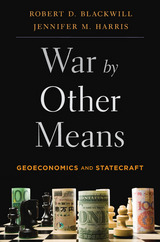
A Foreign Affairs Best Book of 2016
Today, nations increasingly carry out geopolitical combat through economic means. Policies governing everything from trade and investment to energy and exchange rates are wielded as tools to win diplomatic allies, punish adversaries, and coerce those in between. Not so in the United States, however. America still too often reaches for the gun over the purse to advance its interests abroad. The result is a playing field sharply tilting against the United States.
“Geoeconomics, the use of economic instruments to advance foreign policy goals, has long been a staple of great-power politics. In this impressive policy manifesto, Blackwill and Harris argue that in recent decades, the United States has tended to neglect this form of statecraft, while China, Russia, and other illiberal states have increasingly employed it to Washington’s disadvantage.”
—G. John Ikenberry, Foreign Affairs
“A readable and lucid primer…The book defines the extensive topic and opens readers’ eyes to its prevalence throughout history…[Presidential] candidates who care more about protecting American interests would be wise to heed the advice of War by Other Means and take our geoeconomic toolkit more seriously.
—Jordan Schneider, Weekly Standard
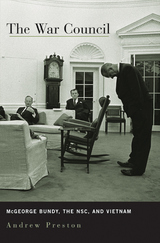
Was the Vietnam War unavoidable? Historians have long assumed that ideological views and the momentum of events made American intervention inevitable. By examining the role of McGeorge Bundy and the National Security Council, Andrew Preston demonstrates that policymakers escalated the conflict in Vietnam in the face of internal opposition, external pressures, and a continually failing strategy.
Bundy created the position of National Security Adviser as we know it today, with momentous consequences that continue to shape American foreign policy. Both today's presidential supremacy in foreign policy and the contemporary national security bureaucracy find their origins in Bundy's powers as the first National Security Adviser and in the ways in which he and his staff brought about American intervention in Vietnam. Presidents Kennedy and Johnson were not enthusiastic about waging a difficult war in pursuit of murky aims, but the NSC's bureaucratic dexterity and persuasive influence in the Oval Office skewed the debate in favor of the conflict.
In challenging the prevailing view of Bundy as a loyal but quietly doubting warrior, Preston also revises our understanding of what it meant--and means--to be a hawk or a dove. The War Council is an illuminating and compelling story with two inseparable themes: the acquisition and consolidation of power; and how that power is exercised.
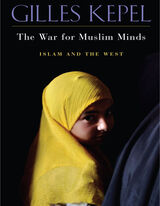
The events of September 11, 2001, forever changed the world as we knew it. In their wake, the quest for international order has prompted a reshuffling of global aims and priorities. In a fresh approach, Gilles Kepel focuses on the Middle East as a nexus of international disorder and decodes the complex language of war, propaganda, and terrorism that holds the region in its thrall.
The breakdown of the Israeli-Palestinian peace process in 2000 was the first turn in a downward spiral of violence and retribution. Meanwhile, a neo-conservative revolution in Washington unsettled U.S. Mideast policy, which traditionally rested on the twin pillars of Israeli security and access to Gulf oil. In Saudi Arabia and Afghanistan, a transformation of the radical Islamist doctrine of Bin Laden and Zawahiri relocated the arena of terrorist action from Muslim lands to the West; Islamist radicals proclaimed jihad against their enemies worldwide.
Kepel examines the impact of global terrorism and the ensuing military operations to stem its tide. He questions the United States' ability to address the Middle East challenge with Cold War rhetoric, while revealing the fault lines in terrorist ideology and tactics. Finally, he proposes the way out of the Middle East quagmire that triangulates the interests of Islamists, the West, and the Arab and Muslim ruling elites. Kepel delineates the conditions for the acceptance of Israel, for the democratization of Islamist and Arab societies, and for winning the minds and hearts of Muslims in the West.

Japan has long wrestled with the memories and legacies of World War II. In the aftermath of defeat, war memory developed as an integral part of particular and divergent approaches to postwar democracy. In the last six decades, the demands placed upon postwar democracy have shifted considerably—from social protest through high economic growth to Japan’s relations in Asia—and the meanings of the war shifted with them.
This book unravels the political dynamics that governed the place of war memory in public life. Far from reconciling with the victims of Japanese imperialism, successive conservative administrations have left the memory of the war to representatives of special interests and citizen movements, all of whom used war memory to further their own interests.
Franziska Seraphim traces the activism of five prominent civic organizations to examine the ways in which diverse organized memories have secured legitimate niches within the public sphere. The history of these domestic conflicts—over the commemoration of the war dead, the manipulation of national symbols, the teaching of history, or the articulation of relations with China and Korea—is crucial to the current discourse about apology and reconciliation in East Asia, and provides essential context for the global debate on war memory.

Paul Rogers is one of the world's leading security experts. Since the 11 September attacks, he has been a regular guest on TV news channels throughout America and Britain, where he has offered expert advice on the real implications of 9/11 and Bush's 'war on terror'. His articles in newspapers around the world, and in the web journal Open Democracy, have become essential reading for many thousands of people, including government officials, senior military, heads of UN agencies, opinion formers, journalists and peace activists.
A War on Terror is Paul Roger's radical assessment of Bush's new policy, the way it has affected world security and the grave implications that it holds for future peace, not only in the Middle East but throughout the world. Moving from the war in Afghanistan and its aftermath to the Israeli/Palestinian conflict, the continuing development of al-Qaida and its associates through to the war on Iraq, Rogers presents a uniquely cogent analysis of these rapid and traumatic events.
In a world in which the US and other states of the Atlantic community are increasingly speaking a different language to that of the majority of the world, Paul Rogers offers a vital critical assessment of the language of dominance and control as 'the New American Century' unfolds.
For the US, in particular, the post-9/11 world is one in which it is essential to maintain firm control of international security, extending to pre-emptive military action. In this book, Rogers demonstrates how futile, mistaken and deeply counter-productive that belief is, and points the way to more effective routes to a more just and secure world.

This book is the first to analyze the institutions, successes, and failures of the People's Democratic Party of Afghanistan, the pro-Soviet regime that sought to dominate the country during the years of the Soviet military presence. Antonio Giustozzi explores the military, political, and social strategies of the predominantly urban and Marxist regime as it struggled—and ultimately failed—to win the support of a largely rural and Islamic population.
Drawing on many Soviet materials not previously used by Western writers, including unpublished Red Army documents and interviews with participants, Giustozzi provides valuable new insights into the cold war and the rise of Islamic revolt.
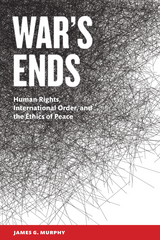
Before military action, and even before mobilization, the decision on whether to go to war is debated by politicians, pundits, and the public. As they address the right or wrong of such action, it is also a time when, in the language of the just war tradition, the wise would deeply investigate their true claim to jus ad bellum (“the right of war”). Wars have negative consequences, not the least impinging on human life, and offer infrequent and uncertain benefits, yet war is part of the human condition.
James G. Murphy’s insightful analysis of the jus ad bellum criteria—competent authority, just cause, right intention, probability of success, last resort, and proportionality—is grounded in a variety of contemporary examples from World War I through Vietnam, the "soccer war" between Honduras and El Salvador, Afghanistan, and the Middle East conflict. Murphy argues persuasively that understanding jus ad bellum requires a primary focus on the international common good and the good of peace. Only secondarily should the argument about going to war hinge on the right of self-defense; in fact, pursuing the common good requires political action, given that peace is not simply the absence of violence. He moves on to demonstrate the interconnectedness of the jus ad bellum criteria, contending that some criteria depend logically on others—and that competent authority, not just cause, is ultimately the most significant criterion in an analysis of going to war. This timely study will be of special interest to scholars and students in ethics, war and peace, and international affairs.

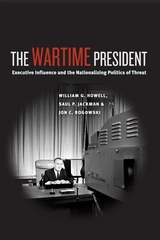
For the first time, William G. Howell, Saul P. Jackman, and Jon C. Rogowski systematically analyze the question. Congress, they show, is more likely to defer to the president’s policy preferences when political debates center on national rather than local considerations. Thus, World War II and the post-9/11 wars in Afghanistan and Iraq significantly augmented presidential power, allowing the president to enact foreign and domestic policies that would have been unattainable in times of peace. But, contrary to popular belief, there are also times when war has little effect on a president’s influence in Congress. The Vietnam and Gulf Wars, for instance, did not nationalize our politics nearly so much, and presidential influence expanded only moderately.
Built on groundbreaking research, The Wartime President offers one of the most significant works ever written on the wartime powers presidents wield at home.
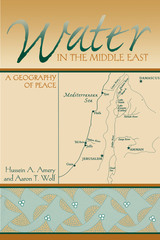
Finding "streams in the desert" has never been more urgent for the peoples of the Middle East. Rapid population growth and a rising standard of living are driving water demand inexorably upward, while the natural supply has not increased since Biblical times. Ensuring a fair and adequate distribution of water in the region is vitally important for building a lasting peace among the nations of the Middle East.
Addressing water needs from a geographical perspective, the contributors to this book analyze and assess the impact of scarce water resources in the Jordan River basin countries and territories (Israel, Jordan, Lebanon, Palestine, and Syria) as these long-time antagonists work toward peace. After geographical and historical overviews, the authors envision the future-what the water issues may be when Israel and Syria begin negotiating, the "hydro-security" needs of each nation, and the difficulties of planning for uncertainty. Without proposing any one ideal scheme, they discuss the possibilities for cooperative sharing of water resources, while honestly acknowledging the political constraints that may limit such projects. The final essay speaks to the needs of the one party so rarely represented at the negotiating table—the Jordan River itself.
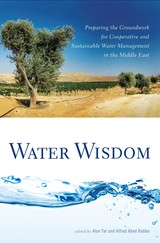
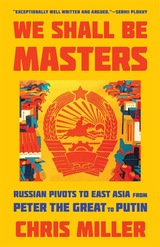
An illuminating account of Russia’s attempts—and failures—to achieve great power status in Asia.
Since Peter the Great, Russian leaders have been lured by opportunity to the East. Under the tsars, Russians colonized Alaska, California, and Hawaii. The Trans-Siberian Railway linked Moscow to Vladivostok. And Stalin looked to Asia as a sphere of influence, hospitable to the spread of Soviet Communism. In Asia and the Pacific lay territory, markets, security, and glory.
But all these expansionist dreams amounted to little. In We Shall Be Masters, Chris Miller explores why, arguing that Russia’s ambitions have repeatedly outstripped its capacity. With the core of the nation concentrated thousands of miles away in the European borderlands, Russia’s would-be pioneers have always struggled to project power into Asia and to maintain public and elite interest in their far-flung pursuits. Even when the wider population professed faith in Asia’s promise, few Russians were willing to pay the steep price. Among leaders, too, dreams of empire have always been tempered by fears of cost. Most of Russia’s pivots to Asia have therefore been halfhearted and fleeting.
Today the Kremlin talks up the importance of “strategic partnership” with Xi Jinping’s China, and Vladimir Putin’s government is at pains to emphasize Russian activities across Eurasia. But while distance is covered with relative ease in the age of air travel and digital communication, the East remains far off in the ways that matter most. Miller finds that Russia’s Asian dreams are still restrained by the country’s firm rooting in Europe.

“Miller’s terrific book reminds that Russia made moves toward the East five hundred years ago, and explains why ignoring the Russian factor in Asian geopolitics today would be a big mistake.”
—Michael McFaul, author of From Cold War to Hot Peace
“Miller presents a Russia little known in the West: a Eurasian power that treats its eastern calling as seriously as it does its western one. Exceptionally well written and argued, We Shall Be Masters helps us understand Russia on its own terms and offers historical insight into the future of its relations with China, its main rival and occasional ally.”
—Serhii Plokhy, author of The Gates of Europe
“Challenges the conventional view that [Russia] has enduring interests in the Far East…For Russia, Miller argues, Asia has been a land of unfulfilled promises.”
—Foreign Affairs
“Captures the immensity, complexity, and importance of Russia’s eastern borderlands through the eyes of its explorers…Comprehensive and fluidly written.”
—Publishers Weekly
Ever since Peter the Great, Russian leaders have been lured by the promise of the East. But from the tsars to Stalin and beyond, Russia’s ambitions have repeatedly outstripped its capacity. In We Shall Be Masters, Chris Miller explores why these expansionist dreams so often ended in disappointment. With the heart of the nation in the European borderlands, Russia’s would-be pioneers struggled to maintain public interest in their far-flung pursuits. But its leaders never stopped setting their sights on the riches of the East. Today, as Vladimir Putin seeks to cement his strategic partnership with Xi Jinping’s China, the East remains as elusive and attractive to Russia as ever—and is likely to be as unattainable.

Weapon of the Strong analyses the forms of US state terrorism through exclusive, never before published interviews with leading commentators and theorists, including Noam Chomsky, Edward S. Herman, Richard A. Falk, Judith Butler, Ted Honderich, Norman Finkelstein and Gilbert Achcar. The interviews explore the different aspects of state terrorism: its functions, institutional supports and the legal and moral arguments surrounding it, and consider specific case studies in Europe, Latin America and the Middle East.
Weapon of the Strong makes an indispensable contribution to contemporary debates on terrorism and constructs a damning critique of US foreign policy from World War Two to the present day.
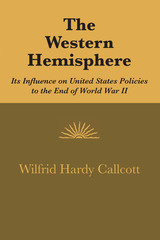
The Monroe Doctrine, "dollar diplomacy," the policy of the Good Neighbor—these well-known terms indicate the spectrum of the United States's relationships with its neighbors of the Western Hemisphere. Hemisphere thinking in the "Yankee" nation, founded on economic, political, and strategic needs, has come to encompass an appreciation of social and intellectual aspects as a vital part of a unified international unit.
In The Western Hemisphere: Its Influence on United States Policies to the End of World War II, Wilfrid Hardy Callcott traces the rise of this awareness of the essential unity of the Western Hemisphere in international affairs. Although Callcott concentrates on the United States, he discusses all hemisphere countries, and his inclusion of Canada adds an additional dimension to previous studies on the subject.
From the early days of the Republic to the end of World War I, the relations of the United Stales with its neighbors gradually developed from mere curiosity and from on-the-spot decision-making into policy. During the eighteenth century the persons entrusted with United States foreign policy pressed forward with their own country's westward expansion, while they expressed only an academic interest in the affairs of other Western Hemisphere nations from Canada to Brazil.
By the end of the nineteenth century the United States had enthusiastically joined the imperialist nations. Although it soon replaced the use of force with economic controls, its military and economic manipulations naturally generated more fear and antagonism in the neighboring nations than cooperation and sympathy.
After World War I, attention to the hemisphere was fostered by the need for strategic raw materials that were to be found from Canada to South America, and by Old World rivalries and needs that endangered New World interests. Canadian and Latin American views of Europe and the League of Nations became much like those of the United States. The new conditions that arose called forth the Good Neighbor policy to combine economic and strategic values in a complex program that included intellectual, social, and cultural elements. World War II accentuated the new consciousness and compelled recognition of the significance of hemisphere relationships in all of the New World nations.

Since November 8, 1942, when American troops in Operation Torch first landed on the beaches of North Africa, almost a million Americans—military personnel and their dependents—have lived in Morocco. Their impact on the political and social evolution of Morocco has been significant, but historians and political scientists before this book had made little effort to chart its course or to assess its outcome.
The naval base at Port Lyautey in Morocco was the first foreign base captured by American troops in World War II, and United States objectives in Morocco continued to be primarily military. In 1942, as the price for French support against the Axis, the United States pledged its support for the restoration of the prewar French colonial empire. In 1950, faced with the threat of Soviet aggression, the United States negotiated an agreement with France and built four United States Air Force bases in Morocco without consultation with or notification of the Moroccan government.
In spite of its sterile diplomatic policy and both Communist and Moroccan nationalist demands for evacuation of United States military bases, the United States retained essential military facilities in Morocco for many years. Leon Blair concludes that American military personnel and their dependents favorably conditioned Moroccan public opinion. By their egalitarianism, humanitarianism, and evident interest, they reinforced the idealistic image of the United States that was held by the majority of Moroccans.
These Americans were neither individually nor collectively conscious agents in a campaign to modify Moroccan public opinion; they were simply a Western window in the Arab world, through which two civilizations might view one another. In the long run, they made a greater contribution in peace than in war.
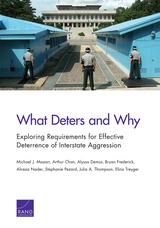
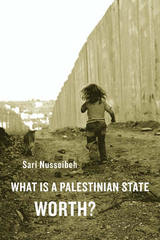
“In a display of rationality uncommon to discussions of the Israeli-Palestinian conflict, Nusseibeh takes an impartial vantage point, trying to sort out a mess largely generated by overblown and hyperactive political identities.”—Boston Review
“[This] philosophical and balanced book is unfailingly sensitive and empathetic to both sides.”—Publishers Weekly
Can a devout Jew be a devout Jew and drop the belief in the rebuilding of the Temple? Can a devout Muslim be a devout Muslim and drop the belief in the sacredness of the Rock? Can one right (the right of return) be given up for another (the right to live in peace)? Can one claim Palestinian identity and still retain Israeli citizenship? What is a Palestinian state worth? For over sixty years, the Israeli-Palestinian conflict has been subjected to many solutions and offered many answers by diverse parties. Yet, answers are only as good as the questions that beget them. It is with this simple, but powerful idea, the idea of asking the basic questions anew, that the renowned Palestinian philosopher and activist Sari Nusseibeh begins his book.
What Is a Palestinian State Worth? poses questions about the history, meaning, future, and resolution of the Israel/Palestine conflict. Deeply informed by political philosophy and based on decades of personal involvement with politics and social activism, Nusseibeh’s moderate voice—global in its outlook, yet truly grounded in his native city of Jerusalem—points us toward a future which, as George Lamming once put it, is colonized by our acts in this moment, but which must always remain open.
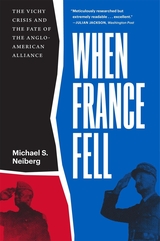
Winner of the Society for Military History’s Distinguished Book Award
Shocked by the fall of France in 1940, panicked US leaders rushed to back the Vichy government—a fateful decision that nearly destroyed the Anglo–American alliance.
According to US Secretary of War Henry Stimson, the “most shocking single event” of World War II was not the Japanese attack on Pearl Harbor, but rather the fall of France in spring 1940. Michael Neiberg offers a dramatic history of the American response—a policy marked by panic and moral ineptitude, which placed the United States in league with fascism and nearly ruined the alliance with Britain.
The successful Nazi invasion of France destabilized American planners’ strategic assumptions. At home, the result was huge increases in defense spending, the advent of peacetime military conscription, and domestic spying to weed out potential fifth columnists. Abroad, the United States decided to work with Vichy France despite its pro-Nazi tendencies. The US–Vichy partnership, intended to buy time and temper the flames of war in Europe, severely strained Anglo–American relations. American leaders naively believed that they could woo men like Philippe Pétain, preventing France from becoming a formal German ally. The British, however, understood that Vichy was subservient to Nazi Germany and instead supported resistance figures such as Charles de Gaulle. After the war, the choice to back Vichy tainted US–French relations for decades.
Our collective memory of World War II as a period of American strength overlooks the desperation and faulty decision making that drove US policy from 1940 to 1943. Tracing the key diplomatic and strategic moves of these formative years, When France Fell gives us a more nuanced and complete understanding of the war and of the global position the United States would occupy afterward.
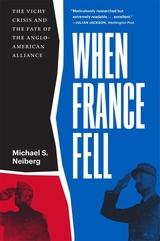
Winner of the Society for Military History’s Distinguished Book Award
“Deeply researched and forcefully written . . . deftly explains the confused politics and diplomacy that bedeviled the war against the Nazis.”—Wall Street Journal
“Neiberg is one of the very best historians on wartime France, and his approach to the fall of France and its consequences is truly original and perceptive as well as superbly written.”—Antony Beevor, author of The Second World War
“An utterly gripping account, the best to date, of relations within the turbulent triumvirate of France, Britain, and America in the Second World War.”—Andrew Roberts, author of Churchill: Walking with Destiny
The “most shocking single event” of World War II, according to US Secretary of War Henry Stimson, was not the Japanese attack on Pearl Harbor but the fall of France in the spring of 1940. The Nazi invasion of France destabilized Washington’s strategic assumptions, resulting in hasty and desperate decision-making. Michael Neiberg offers a dramatic history of America’s bewildering response—policies that placed the United States in league with fascism and nearly ruined its alliance with Britain.
FDR and his advisors naively believed they could woo Vichy France’s decorated wartime leader, Marshal Philippe Pétain, and prevent the country from becoming a formal German ally. The British, convinced that the Vichy government was fully subservient to Nazi Germany, chose to back Charles de Gaulle and actively financed and supported the Resistance. After the war, America’s decision to work with the Vichy regime cast a pall over US-French relations that lasted for decades.

Does state acquisition of nuclear weapons lead to stability and peace or instability and crises? This is one of the great debates in international relations scholarship. Michael D. Cohen argues that nuclear weapons acquisition often does dangerously embolden the acquiring state to undertake coercion and aggression, but that this behavior moderates over time as leaders learn the dangers and limitations of nuclear coercion. This book examines the historical cases of the Soviet Union and Pakistan in depth and also looks at mini-cases involving the United States, China, and India. This book broadens our understanding of how leaders and states behave when they acquire nuclear weapons and is important reading for scholars and students of international relations, security studies, and political psychology.
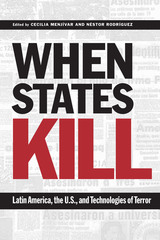
Since the early twentieth century, technological transfers from the United States to Latin American countries have involved technologies of violence for social control. As the chapters in this book illustrate, these technological transfers have taken various forms, including the training of Latin American military personnel in surveillance and torture and the provision of political and logistic support for campaigns of state terror. The human cost for Latin America has been enormous—thousands of Latin Americans have been murdered, disappeared, or tortured, and whole communities have been terrorized into silence.
Organized by region, the essays in this book address the topic of state-sponsored terrorism in a variety of ways. Most take the perspective that state-directed political violence is a modern development of a regional political structure in which U.S. political interests weigh heavily. Others acknowledge that Latin American states enthusiastically received U.S. support for their campaigns of terror. A few see local culture and history as key factors in the implementation of state campaigns of political violence. Together, all the essays exemplify how technologies of terror have been transferred among various Latin American countries, with particular attention to the role that the United States, as a "strong" state, has played in such transfers.
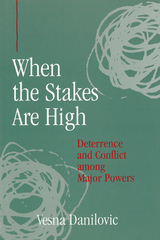
Since the most precarious and common form of dispute between major powers arises over third nations, the author's primary focus is on so-called extended deterrence. In this type of deterrence, one side attempts to prevent another side from initiating or escalating conflict with a third nation. When the Stakes Are High addresses such questions as: When is extended deterrence likely to be effective? What happens if deterrence fails? In what circumstances is war likely to result from a deterrence failure? The author's main argument is that a major power's national interests, which shape the inherent credibility of threats and which are shaped by various regional stakes, set the limits to the relevance of other factors, which have received greater scholarly attention in the past. Strongly supported by the empirical findings, the arguments in this work draw important implications for conflict theory and deterrence policy in the post-Cold War era.
This book will appeal to the reader interested in international relations, in general, and in theories of international conflict, deterrence, causes of wars, great power behavior, and geopolitics, in particular.
Vesna Danilovic is Assistant Professor of Political Science, Texas A&M University.
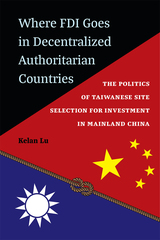
Among all the decentralized authoritarian countries, China is distinctive not only because of its emergence as one of the largest foreign direct investment (FDI) recipient countries with one of the highest levels of fiscal decentralization, but also because of the combination of its fiscal decentralization and the cadre promotion system as incentive institutions for attracting FDI inflows. China is an important case to empirically investigate the impact of fiscal autonomy on adversarial investment because it has become the largest investment destination of its long-term adversary, Taiwan, with Taiwanese FDI being among the largest FDI in mainland China. Given the special role played by local Chinese governments in attracting and hosting Taiwanese FDI, it is important to study the differences between where Taiwanese FDI and other FDI goes.
Given the uniqueness of the China case and that of Taiwanese investment in mainland China, this book explores the following questions. What determines where FDI goes in authoritarian countries like China? Fiscal decentralization has been argued to be a driving force of skyrocketing FDI inflows in China due to its impact on local governments’ incentives. However, is the impact of fiscal autonomy on FDI monolithic with the dynamically changing levels of FDI inflows at the lower administrative levels in China, especially with its special cadre management system? Does the impact of fiscal decentralization on FDI strengthen or weaken or stay the same when attracting FDI inflows from adversarial states? And what are the implications of such adversarial investment—especially as it diffuses from coastal cities to the interior regions, or from key cities to peripheral regions—of decentralized authoritarian countries targeted by this investment?
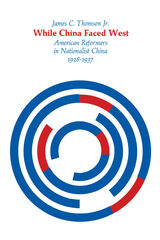
The years from 1928 to 1937 were the “Nanking decade” when the Chinese Nationalist government strove to build a new China with Western assistance. This was an interval of hope between the turbulence of the warlord-ridden twenties and the eight-year war with Japan that began in 1937. James Thomson explores the ways in which Americans, both missionaries and foundation representatives, tried to help the Chinese government and Chinese reformers undertake a transformation of rural society. His is the first in-depth study of these efforts to produce radical change and at the same time avoid the chaos and violence of revolution.
Despite the conservatism of the right wing in the Kuomintang party dictatorship, this Nanking decade saw many promising beginnings. American missionaries—the largest group of Westerners in the Chinese hinterland—often took the initiative locally, and some rallied to support of China’s first modern-minded government. They assisted both in rural reconstruction programs and in efforts of at ideological reform. Thomson analyzes the work of the National Christian Council in an area of Kiangsi province recently recovered from Communist rule. He also traces the deepening involvement of missionaries and the Chinese Christian Church in the “New Life Movement,” sponsored by Chiang Kai-shek.
Unhappily aware of the sharpening polarization of Chinese politics, these American reformers struggled in vain to steer clear of too close an identification with the ruling party. Yet they found themselves increasingly identified with the Nanking regime and their reform efforts obstructed by its disinclination or inability to revolutionize the Chinese countryside. In this way, American reformers in Nationalist China were forerunners of subsequent American attempts, under government sponsorship, to find a middle path between revolution and reaction in other situations of national upheaval.
For this book, James Thomson has used hitherto unexplored archives that document the participation of American private citizens in the process of Chinese social, economic, and political change.
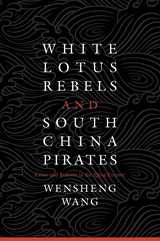
The reign of Emperor Jiaqing (1796–1820 CE) has long occupied an awkward position in studies of China’s last dynasty, the Qing (1644–1911 CE). Conveniently marking a watershed between the prosperous eighteenth century and the tragic post–Opium War era, this quarter century has nevertheless been glossed over as an unremarkable interlude separating two well-studied epochs of great transformation. White Lotus Rebels and South China Pirates presents a major reassessment of this misunderstood period by examining how the emperors, bureaucrats, and foreigners responded to the two crises that shaped the transition from the Qianlong to the Jiaqing reign.
Wensheng Wang argues that the dramatic combination of internal uprising and transnational piracy, rather than being a hallmark of inexorable dynastic decline, propelled the Manchu court to reorganize itself through a series of modifications in policymaking and bureaucratic structure. The resulting Jiaqing reforms initiated a process of state retreat that pulled the Qing Empire out of a cycle of aggressive overextension and resistance, and back onto a more sustainable track of development. Although this pragmatic striving for political sustainability was unable to save the dynasty from ultimate collapse, it represented a durable and constructive approach to the compounding problems facing the late Qing regime and helped sustain it for another century. As one of the most comprehensive accounts of the Jiaqing reign, White Lotus Rebels and South China Pirates provides a fresh understanding of this significant turning point in China’s long imperial history.
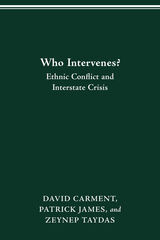
The book includes a comparative analysis of five case studies: India and Sri Lanka, Somalia and Ethiopia, Malaysia and the Thai Malay (a non-intervention), the immediate aftermath of the breakup of Yugoslavia, and Greece and Turkey with Cyprus. The case histories produce strong support for the relevance of the typology and catalysts. Ethnic composition, institutional constraint, and ethnic affinity and cleavage are very useful factors in distinguishing both the likelihood and form of intervention.
Policies that encourage institutional reform and support ethnic diversity can be expected to reduce the likelihood and even the perceived need for intervention.
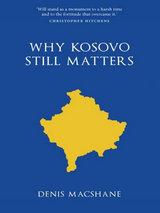
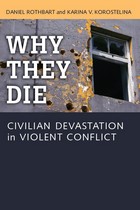
Why do civilians suffer most during times of violent conflict? Why are civilian fatalities as much as eight times higher, calculated globally for current conflicts, than military fatalities? In Why They Die, Daniel Rothbart and Karina V. Korostelina address these questions through a systematic study of civilian devastation in violent conflicts. Pushing aside the simplistic definition of war as a guns-and-blood battle between two militant groups, the authors investigate the identity politics underlying conflicts of many types. During a conflict, all those on the opposite side are perceived as the enemy, with little distinction between soldiers and civilians. As a result, random atrocities and systematic violence against civilian populations become acceptable.
Rothbart and Korostelina devote the first half of the book to case studies: deportation of the Crimean Tatars from the Ukraine, genocide in Rwanda, the Lebanon War, and the war in Iraq. With the second half, they present new methodological tools for understanding different types of violent conflict and discuss the implications of these tools for conflict resolution.
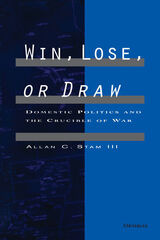
Challenging the assumptions of many realist and neorealist thinkers on war and interstate conflict, Stam shows how domestic political factors affect the outcome of war. Using a rational choice analysis, Stam looks at the factors that affect the decisionmakers' preferences for different outcomes of military conflict, as well as how the payoffs of those outcomes are affected by both domestic and structural factors. Structural factors, such as the state's population, define a state's power relative to that of other states and will affect the probability of a policy succeeding. Domestic factors, such as the positions taken by domestic political groups, will affect the preferences of the leaders for particular outcomes and their willingness to bear the costs associated with the payoffs and probabilities of the various outcomes.
This book will be of interest to political scientists studying war and conflict in the international system as well as to historians and military strategists interested in understanding the factors that predict the outcome of war.
Allan Stam is Assistant Professor of Political Science, Yale University.
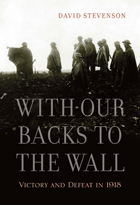
With so much at stake and so much already lost, why did World War I end with a whimper-an arrangement between two weary opponents to suspend hostilities? After more than four years of desperate fighting, with victories sometimes measured in feet and inches, why did the Allies reject the option of advancing into Germany in 1918 and taking Berlin? Most histories of the Great War focus on the avoidability of its beginning. This book brings a laser-like focus to its ominous end-the Allies' incomplete victory, and the tragic ramifications for world peace just two decades later.
In the most comprehensive account to date of the conflict's endgame, David Stevenson approaches the events of 1918 from a truly international perspective, examining the positions and perspectives of combatants on both sides, as well as the impact of the Russian Revolution. Stevenson pays close attention to America's effort in its first twentieth-century war, including its naval and military contribution, army recruitment, industrial mobilization, and home-front politics. Alongside military and political developments, he adds new information about the crucial role of economics and logistics.
The Allies' eventual success, Stevenson shows, was due to new organizational methods of managing men and materiel and to increased combat effectiveness resulting partly from technological innovation. These factors, combined with Germany's disastrous military offensive in spring 1918, ensured an Allied victory-but not a conclusive German defeat.
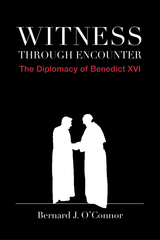
Appealing to dialogue is often just a safe way of referring to something negative, or at best blandly neutral: the avoidance of conflict, the denial of similarity, not stirring deep-seated disagreement, etc. When Bernard o’Connor says pope Benedict XVI facilitated dialogue, however, he means something quite positive, very much tangible and certainly transformative. In providing an account of the pope’s interactions with various groups of the international community, O’Connor attempts to convey Benedict XVI’s diplomacy as encounter, where even in the sphere of international relations exhortations to “dialogue” are invitations to see more clearly and be moved as much as move.
To dialogue is to embrace, revise perception such that our approaches to the great questions of our day are not simply shared but correct. As O’Connor writes, “Pope Benedict attempts to promote the outlook that a renewed emphasis upon objective, critical and structured philosophical reasoning positions practice, diplomatic and otherwise, to regain its lost foundation and framework. the quest for integrity, if nothing else, should motivate our fidelity to academic pursuit, to intellectual investigation, and to rigorous interdisciplinary inquiry. so influenced, practice will then reject what is arbitrary and be guided by what is time-tested and enduring.”
O’Connor illustrates true dialogue emerging from the encounter, and in turn provides scores of characteristics of this encounter as it unfolds in papal diplomacy. In providing scores of addresses and speeches to various bodies, O’Connor presents pope Benedict XVI as an example of effective diplomacy that treats the meetings on the world stage as engaging in true dialogue. encounter is the true basis of dialogue and one that allows it to open to what is truly a catalyst for change toward cooperation––witness, both personal and collective. As o’Connor shows, “where there is authentic encounter, as meeting in mutual trust, what arises is context for witness.” If authentic even the diplomatic encounter has the means to deepen and transform one’s being.
Witness Through Encounter intends to fulfill multiple needs. the diplomatic approach exemplified herein is singular and worthy of study among political scientists, sociologists, philosophers and diplomats eager to embrace a worldview that is more personal than simply humanistic. this work will also be useful in inter-religious settings. An additional advantage of O’Connor’s presentation of Benedict XVI’s diplomatic approach, his witness through encounter, is that it contains insight valuable to the scholar alongside the resources used.

Women and Gender Perspectives in the Military compares the integration of women, gender perspectives, and the women, peace, and security agenda into the armed forces of eight countries plus NATO and United Nations peacekeeping operations. This book brings a much-needed crossnational analysis of how militaries have or have not improved gender balance, what has worked and what has not, and who have been the agents for change.
The country cases examined are Sweden, the Netherlands, Canada, the United States, the United Kingdom, Israel, Australia, and South Africa. Despite increased opportunities for women in the militaries of many countries and wider recognition of the value of including gender perspectives to enhance operational effectiveness, progress has encountered roadblocks even nearly twenty years after United Nations Security Council Resolution 1325 kicked off the women, peace, and security agenda. Robert Egnell, Mayesha Alam, and the contributors to this volume conclude that there is no single model for change that can be applied to every country, but the comparative findings reveal many policy-relevant lessons while advancing scholarship about women and gendered perspectives in the military.

In 1918, Woodrow Wilson’s image as leader of the free world and the image of America as dispenser of democracy spread throughout Italy, filling an ideological void after the rout of Caporetto and diverting attention from a hapless ruling class. Wilson’s popularity depended not only on the modernity of his democratic message, but also on a massive propaganda campaign he conducted across Italy, using as conduits the American Red Cross, the YMCA, and the Committee on Public Information.
American popularity, though, did not ensure mutual understanding. The Paris peace negotiations revealed the limits of policies on both sides, illustrated most clearly in Wilson’s disastrous direct appeal to the Italian public. The estranged countries pulled inward, the Americans headed toward isolationism, the Italians toward fascism.
Rossini sets the Italian-American political confrontation within the full context of the two countries’ cultural perceptions of each other, different war experiences, and ideas about participatory democracy and peace. A stellar example of the new international history, this timely book highlights the impact of American ideology and sense of mission in the world.

Are you looking for a career with professional rewards and personal satisfaction? Perhaps you'd like to find meaningful employment in the field of international relations? Working World is the perfect resource for making sound career choices, and is particularly valuable for those interested in exploring a career in international education, exchange, and development.
Sherry Mueller, president emeritus of a large nonprofit organization with an international focus, and Mark Overmann, a young professional on his way up, serve as spirited guidance counselors and offer valuable insight on launching a career, not just landing a job. The two authors—representing contrasting personalities, levels of experience, and different generations—engage in an entertaining dialogue designed to highlight alternative approaches to the same destination: making a difference in the world. With a rich mix of anecdotes and advice, the two authors present their individual perspectives on career development: identifying your cause, the art of networking, the value of mentors, and careers as "continuous journeys." Mueller and Overmann push job seekers to challenge assumptions about what it means to pursue a career in international relations and to recognize that the path to career success is rarely straight.
To help the job seeker chart the best course, Working World provides specific resources including annotated lists of selected organizations, websites, and further reading. Profiles of twelve professionals, from promising young associates to presidents and CEOs, illustrate the book's main topics. Each professional provides insight into his or her career choices, distills lessons learned, and offers practical advice about building a career in international affairs. All of these resources were chosen specifically to help job seekers map the next steps toward the internship, job, or other opportunity that will give shape to the career they envision.
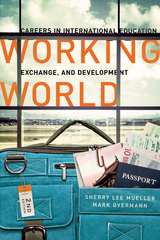
Now available in a new second edition, Working World: Careers in International Education, Exchange, and Development offers an engaging guide for cause-oriented people dedicated to begin or enhance careers in the now burgeoning fields of international affairs. Mueller and Overmann expand their original dialogue between a career veteran and a young professional to address issues that recognize the meteoric rise of social media and dramatic geopolitical events. They explore how the idea of an international career has shifted: nearly every industry taking on more and more international dimensions, while international skills—linguistic ability, intercultural management, and sensitivity—become ever more highly prized by potential employers.
This second edition of Working World offers ten new and four significantly updated profiles as well as new and expanded concepts that include work-life balance, the importance of informational interviews, moving on, and key building blocks for international careers.Like the award-winning first edition, Working World is a rare and valuable resource to students and graduates interested in careers in international affairs, mid-career professionals who want to make a career change or shift, as well as guidance counselors and career center specialists at universities.
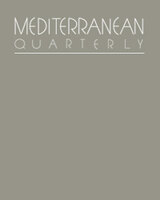
Contributors from the Mediterranean Basin and the U.S.—both supporters and critics of U.S. foreign policy in pre- and postwar Iraq—investigate the U.S.’s “war on terrorism” and its associated concept of “preemptive war” as viable political strategies. Other essays weigh the ramifications of recent U.S. foreign policy in the Middle East for the institutions that have governed international relations since World War II and consider the political, social, and economic costs of this policy both for the U.S. itself and for the countries it targets.
Contributors. Stephen C. Calleya, Vincent M. Cannistraro, Ted Galen Carpenter, Mohamed A. El-Khawas, Ivan Eland, William H. Lewis, Raymond Muhula, Bernard Reich, Burton M. Sapin, Joseph J. Sisco, Nikolaos A. Stavrou, Stansfield Turner

On November 10, 2017, Pope Francis became the first pontiff in the nuclear era to take a complete stand against nuclear weapons, even as a form of deterrence. At a Vatican conference of leaders in the field of disarmament, he made it clear that the possession of the bomb itself was immoral. A World Free from Nuclear Weapons presents the pope’s address and original testimony from Nobel Peace Prize laureates, religious leaders, diplomats, and civil society activists.
These luminaries, which include the pope and a Hiroshima survivor, make the moral case against possessing, manufacturing, and deploying nuclear arms. Drew Christiansen, a member of the Holy See delegation to the 2017 United Nations conference that negotiated the Treaty to Prohibit Nuclear Weapons, helps readers to understand this conference in its historical context.
A World Free from Nuclear Weapons is a critical companion for scholars of modern Catholicism, moral theology, and peace studies, as well as policymakers working on effective disarmament. It shows how the Church’s revised position presents an opportunity for global leaders to connect disarmament to larger movements for peace, pointing toward future action.
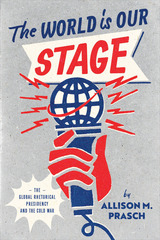
Crowds swarm when US presidents travel abroad, though many never hear their voices. The presidential body, moving from one secured location to another, communicates as much or more to these audiences than the texts of their speeches. In The World is Our Stage, Allison M. Prasch considers how presidential appearances overseas broadcast American superiority during the Cold War. Drawing on extensive archival research, Prasch examines five foundational moments in the development of what she calls the “global rhetorical presidency:” Truman at Potsdam, Eisenhower’s “Goodwill Tours,” Kennedy in West Berlin, Nixon in the People’s Republic of China, and Reagan in Normandy. In each case, Prasch reveals how the president’s physical presence defined the boundaries of the “Free World” and elevated the United States as the central actor in Cold War geopolitics.

A sobering account of how the United States trapped itself in endless wars—abroad and at home—and what it might do to break free.
Over the past half-century, Americans have watched their country extend its military power to what seemed the very ends of the earth. America’s might is felt on nearly every continent—and even on its own streets. Decades ago, the Wars on Drugs and Terror broke down the walls separating law enforcement from military operations. A World of Enemies tells the story of how an America plagued by fears of waning power and influence embraced foreign and domestic forever wars.
Osamah Khalil argues that the militarization of US domestic and foreign affairs was the product of America’s failure in Vietnam. Unsettled by their inability to prevail in Southeast Asia, US leaders increasingly came to see a host of problems as immune to political solutions. Rather, crime, drugs, and terrorism were enemies spawned in “badlands”—whether the Middle East or stateside inner cities. Characterized as sites of endemic violence, badlands lay beyond the pale of civilization, their ostensibly racially and culturally alien inhabitants best handled by force.
Yet militarized policy has brought few victories. Its failures—in Iraq, Afghanistan, US cities, and increasingly rural and borderland America—have only served to reinforce fears of weakness. It is time, Khalil argues, for a new approach. Instead of managing never-ending conflicts, we need to reinvest in the tools of traditional politics and diplomacy.
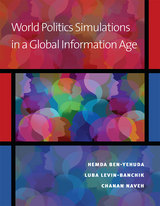
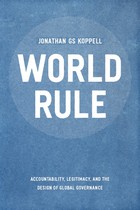
Dilemmas from climate change to financial meltdowns make it clear that global interconnectedness is the norm in the twenty-first century. As a result, global governance organizations (GGOs)—from the World Trade Organization to the Forest Stewardship Council—have taken on prominent roles in the management of international affairs. These GGOs create and promulgate rules to address a host of pressing problems. But as World Rule reveals, they struggle to meet two challenges: building authority despite limited ability to impose sanctions and maintaining legitimacy while satisfying the demands of key constituencies whose support is essential to a global rulemaking regime.
Through a novel empirical study of twenty-five GGOs, Jonathan GS Koppell provides a clearer picture of the compromises within and the competition among these influential institutions by focusing attention on their organizational design. Analyzing four aspects of GGO organization in depth—representation and administration, the rulemaking process, adherence and enforcement, and interest group participation—Koppell describes variation systemically, identifies patterns, and offers explanations that link GGO design to the fundamental challenge of accountability in global governance.
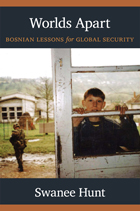

In the last half century, the nature of war has changed dramatically. Wars in the post–Cold War period have occurred mainly within national borders rather than between sovereign states. In these conflicts, civilians are increasingly the deliberate targets of war rather than accidental victims. Women and children in particular have become the intentional targets of murder, rape, and kidnapping.
The book focuses on the impact of war on women and girls, and the potential for women as peacemakers. The text addresses major policy issues facing organizations involved in humanitarian assistance, and highlights actions to address and resolve armed violence and conflict.
Wounds of War presents ten country profiles, along with information on eleven key topics related to the impacts of war, including the economies of war, small arms and light weapons, landmines, violence against women and girls, and missing persons.
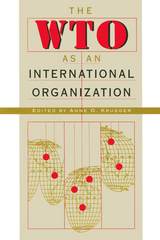
"[T]his book is a tour de force, with consistently fine papers by leading experts, and it is worthy of any bookshelf." —Joel P. Trachtman, American Journal of International Law
"This latest conference volume from the National Bureau of Economic Research is likely to be the definitive reference work on the WTO for years to come. . . . Specialists and non-specialists alike will gain a great deal from a careful reading of this impressive volume." —John Ravenhill, Australian Journal of Political Science
"For anyone who is interested in the further development of the rule system for the world economy, this book is a must." —Horst Siebert, Review of World Economics
READERS
Browse our collection.
PUBLISHERS
See BiblioVault's publisher services.
STUDENT SERVICES
Files for college accessibility offices.
UChicago Accessibility Resources
home | accessibility | search | about | contact us
BiblioVault ® 2001 - 2024
The University of Chicago Press









